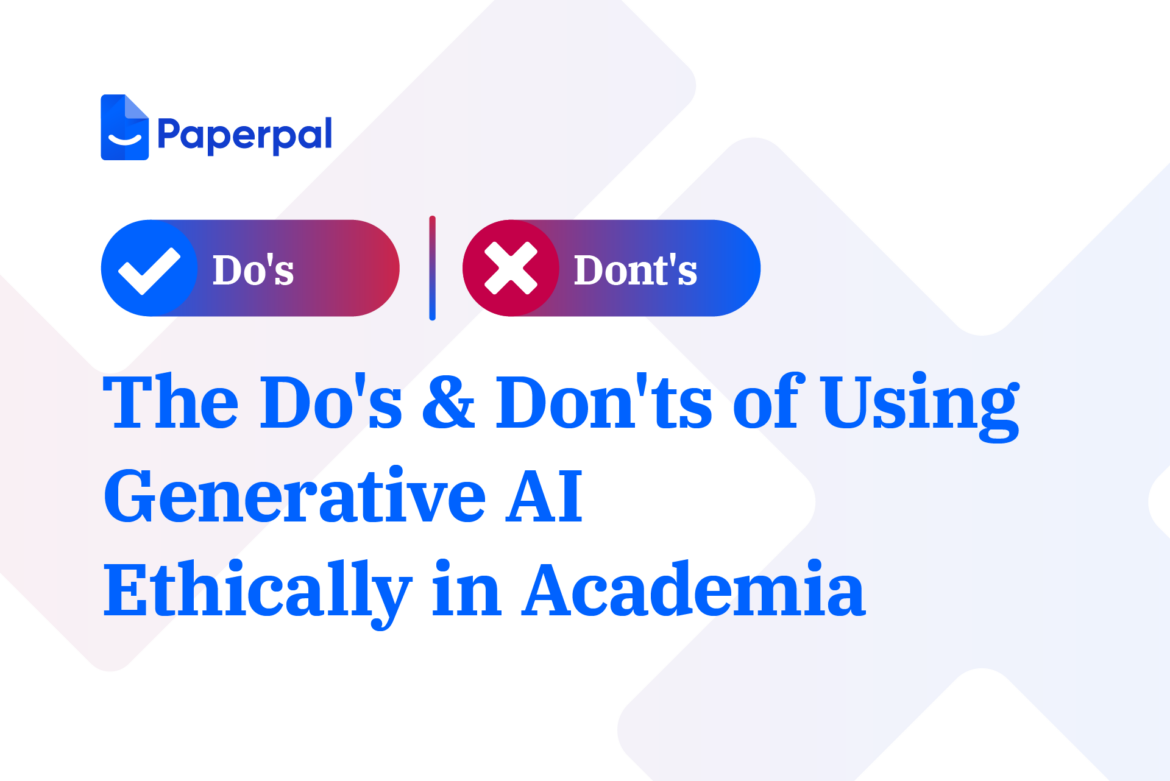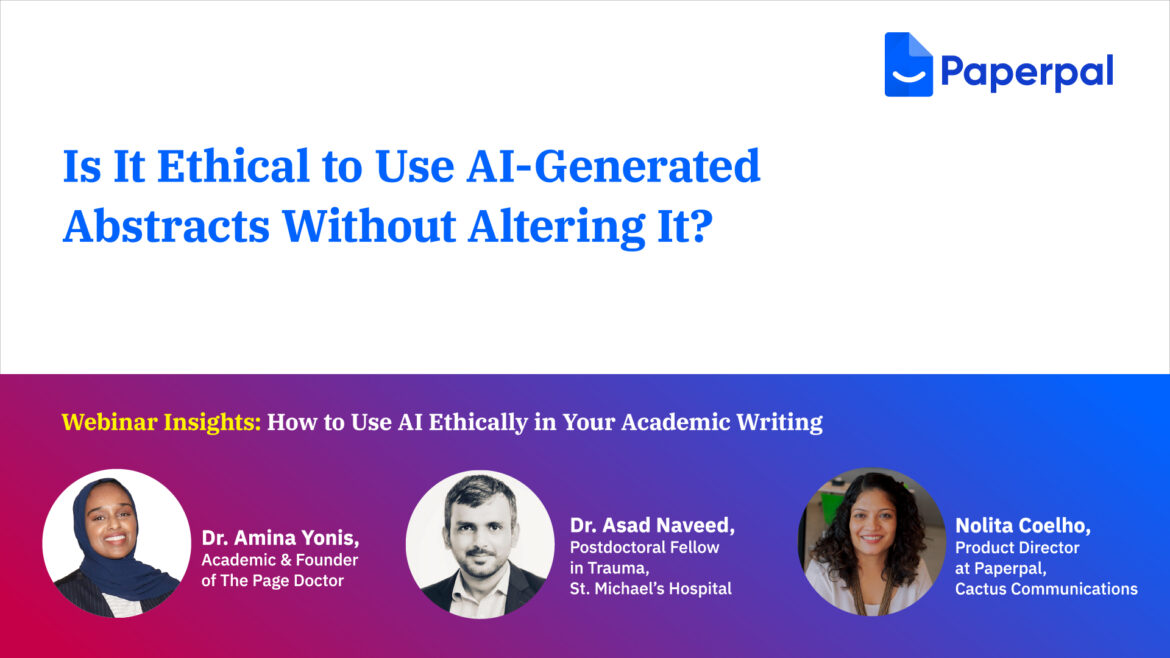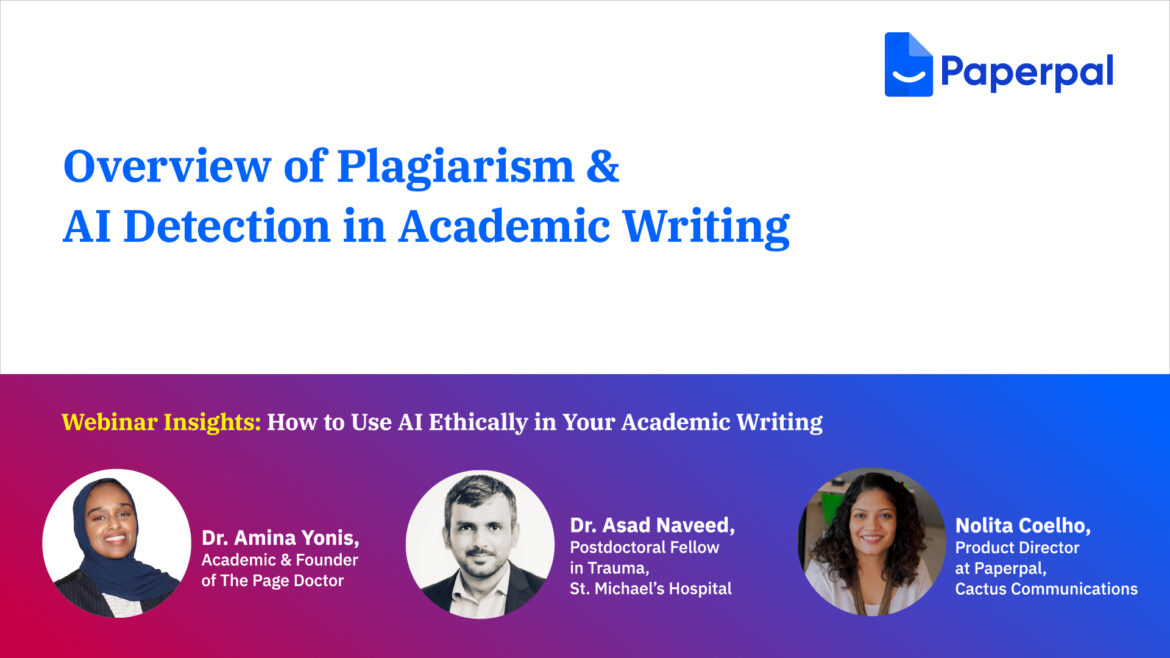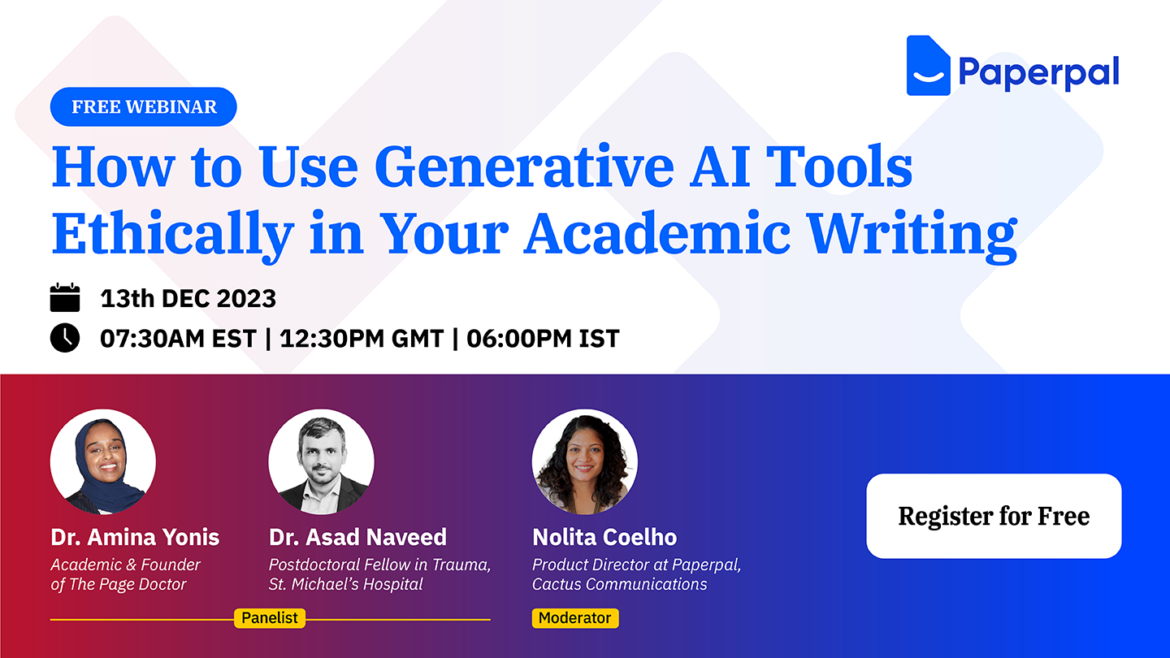Generative AI tools are transforming how researchers and students write, yet many still face uncertainty about what’s ethical, what’s allowed, and how to avoid unintentional mistakes. Paperpal’s recent survey of 1,400+ academics revealed that while over 80% use AI tools for their research and writing, 44% of the respondents were …
ethical AI writing
Generative AI has ushered in a new era of possibilities, redefining the way we create content, analyze data, and unlock new insights. However, as academics delve into the efficiencies that these generative AI tools offer, it’s crucial to recognize their limitations and be aware of the ethical considerations around using …
The use of AI tools in academic content creation has sparked a debate on the ethical implications of using AI-generated abstracts without any modifications. While some argue that reproducing the abstract generated by an AI tool without any modifications may not necessarily be unethical, others raise concerns about the originality …
Originality has always been a cornerstone of academic success. But the landscape is changing. With the rise of AI writing assistants, the line between helpful tool and sneaky shortcut is blurring. This raises a crucial question: can traditional plagiarism checkers, a student’s reliable partner to detect plagiarism, keep pace with …
The integration of artificial intelligence (AI) tools into the academic writing process has sparked numerous debates, particularly around the ethical considerations of plagiarism and AI detection. The interest in this topic was evident in the engagement and enthusiasm we saw in our recent webinar on the ethical use of AI …
Generative AI tools have emerged as a powerful ally for researchers and students around the world. But the academic community embraces AI for their academic writing needs, it becomes imperative to understand not just the capabilities of these generative AI tools but also the ethical considerations that should guide their …








